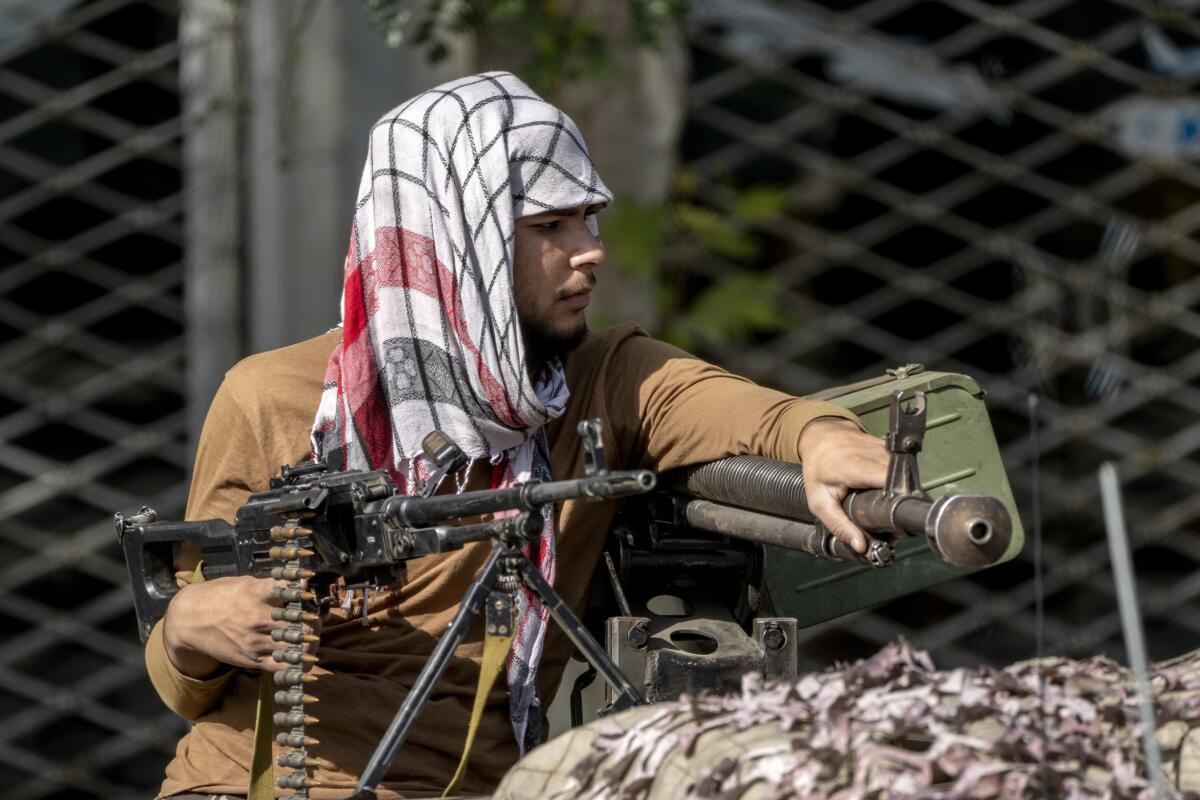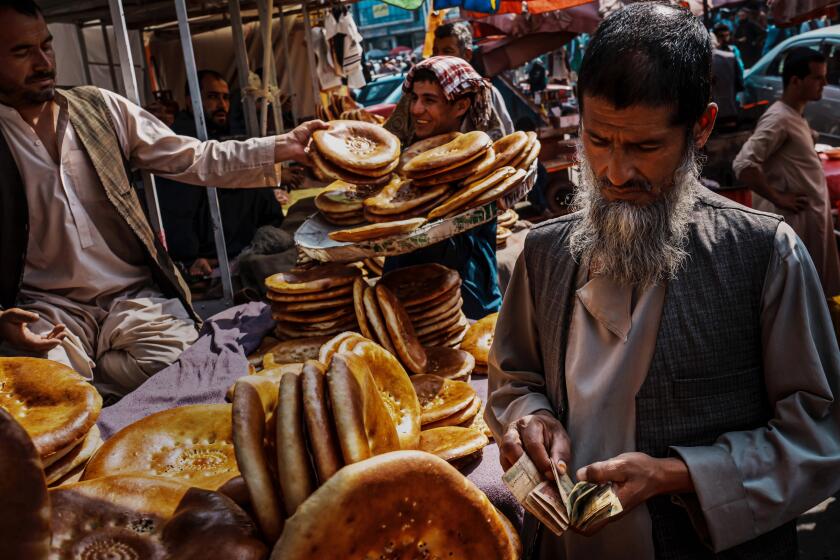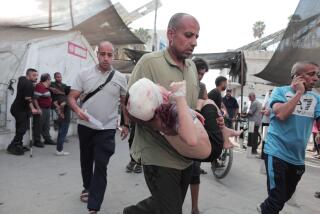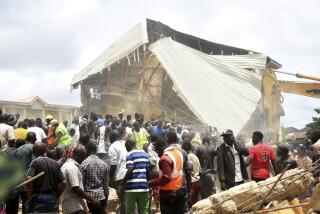Suicide bombing in Shiite area of Kabul kills 19, Taliban says

- Share via
KABUL — A suicide bomber struck an education center in a Shiite area of the Afghan capital Friday, killing 19 people and wounding 27, including teenagers who were taking practice entry exams for university, a Taliban spokesman said.
The morning explosion at the center took place in Kabul’s Dashti Barchi neighborhood, an area populated mostly by ethnic Hazaras, who belong to Afghanistan’s minority Shiite community. The Islamic State group has carried out repeated, horrific attacks on schools, hospitals and mosques in Dashti Barchi and other Shiite areas in recent years.
Around 300 recent high school graduates, boys and girls, had come to the Kaaj Higher Educational Center at 6:30 a.m. to take practice exams, said one survivor, 19-year-old Shafi Akbary. The facility helps students prepare and study for the entrance exams, among other activities.
About an hour into the session, the blast went off.
“First, we heard the sounds of a few gunshots at the main gate. Everyone was worried and tried to run to a different direction,” Akbary said by telephone. “Soon after that, a huge explosion occurred inside the center.”
Akbary, who was unharmed, said he saw dozens of bodies and wounded people scattered around him. “I was so afraid and couldn’t even move myself to help them. Later, other people ran inside and took us out,” he added.
Because of sanctions, economically stricken Afghanistan is now a cash-only society — but that’s a problem when its banknotes are falling apart.
Akbary said he has attended classes at the center the last six months.
Khalid Zadran, the Taliban-appointed spokesman of the Kabul police who gave the casualty toll, said students were among the victims of the blast, but he did not specify how many. He said education centers in the area will need to ask the Taliban for additional security when they host events with big gatherings like Friday’s exam prep.
Police have arrested a suspect who may have links to the attack, Interior Ministry spokesman Abdul Nafi Takor said later. He was unable to provide any updates on the casualties.
No one immediately claimed responsibility for the attack. But the Islamic State group, the chief rival of the Taliban, has been waging a campaign of violence that has intensified since the Taliban took power in Afghanistan in August 2021.
U.S. Navy veteran and civilian contractor Mark Frerichs was held for more than two years in Afghanistan by kidnappers linked to the Taliban.
Afghanistan’s Hazaras have been a frequent target of the violence. In Dashti Barchi, Islamic State carried out a 2020 attack on a maternity hospital that killed 24 people, including newborn babies and mothers, and an attack on a school in 2021 that killed more than 90, mostly schoolgirls. The neighborhood sees frequent bombings of minibuses. Earlier this year, a school and another education center were hit almost simultaneously, killing six.
Amnesty International’s South Asia campaigner, Samira Hamidi, said Friday’s attack showed the “utter failure of the Taliban, as de facto authorities, to protect the people of Afghanistan.
She said the Taliban has taken few measures to protect the public, especially Shiites and Hazaras “Instead, their actions of omission and commission have only further aggravated the risk to the lives of the people of Afghanistan, especially those belonging to ethnic and minority communities,” she said.
The U.S. chargé d’affaires for Afghanistan, Karen Decker, condemned Friday’s attack in a tweet.
Breaking News
Get breaking news, investigations, analysis and more signature journalism from the Los Angeles Times in your inbox.
You may occasionally receive promotional content from the Los Angeles Times.
“Targeting a room full of students taking exams is shameful; all students should be able to pursue an education in peace & without fear,” she said. “We hope for a swift recovery for the victims & we grieve with the families of the deceased.”
The United Nations’ children’s agency, UNICEF, said it was appalled by Friday’s horrific attack. “Children and adolescents are not, and must never be, the target of violence,” it said in a tweet.
Since seizing power, the Taliban has banned most girls beyond the sixth grade from attending school. But female high school graduates from previous years can go to university.
More to Read
Sign up for Essential California
The most important California stories and recommendations in your inbox every morning.
You may occasionally receive promotional content from the Los Angeles Times.












